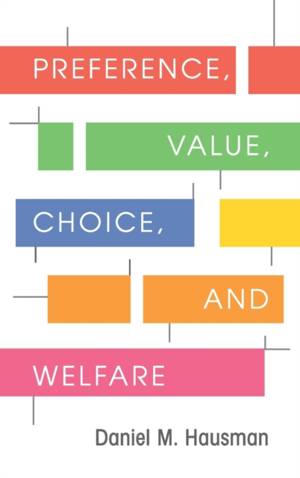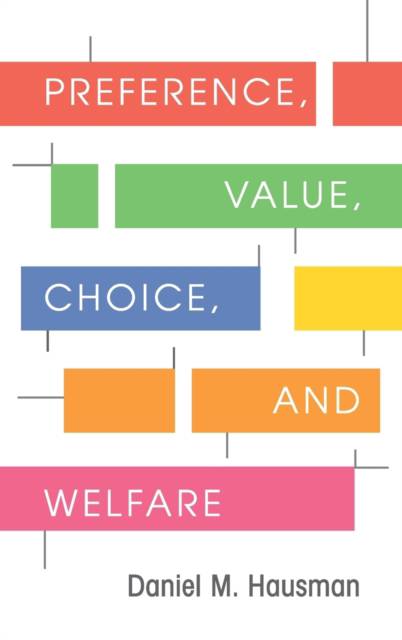
Door een staking bij bpost kan je online bestelling op dit moment iets langer onderweg zijn dan voorzien. Dringend iets nodig? Onze winkels ontvangen jou met open armen!
- Afhalen na 1 uur in een winkel met voorraad
- Gratis thuislevering in België vanaf € 30
- Ruim aanbod met 7 miljoen producten
Door een staking bij bpost kan je online bestelling op dit moment iets langer onderweg zijn dan voorzien. Dringend iets nodig? Onze winkels ontvangen jou met open armen!
- Afhalen na 1 uur in een winkel met voorraad
- Gratis thuislevering in België vanaf € 30
- Ruim aanbod met 7 miljoen producten
Zoeken
€ 180,45
+ 360 punten
Uitvoering
Omschrijving
This book is about preferences, principally as they figure in economics. It also explores their uses in everyday language and action, how they are understood in psychology, and how they figure in philosophical reflection on action and morality. The book clarifies and for the most part defends the way in which economists invoke preferences to explain, predict, and assess behavior and outcomes. Hausman argues, however, that the predictions and explanations economists offer rely on theories of preference formation that are in need of further development, and he criticizes attempts to define welfare in terms of preferences and to define preferences in terms of choices or self-interest. The analysis clarifies the relations between rational choice theory and philosophical accounts of human action. The book also assembles the materials out of which models of preference formation and modification can be constructed, and it comments on how reason and emotion shape preferences.
Specificaties
Betrokkenen
- Auteur(s):
- Uitgeverij:
Inhoud
- Aantal bladzijden:
- 168
- Taal:
- Engels
Eigenschappen
- Productcode (EAN):
- 9781107015432
- Verschijningsdatum:
- 12/12/2011
- Uitvoering:
- Hardcover
- Formaat:
- Genaaid
- Afmetingen:
- 157 mm x 231 mm
- Gewicht:
- 362 g

Alleen bij Standaard Boekhandel
+ 360 punten op je klantenkaart van Standaard Boekhandel
Beoordelingen
We publiceren alleen reviews die voldoen aan de voorwaarden voor reviews. Bekijk onze voorwaarden voor reviews.











